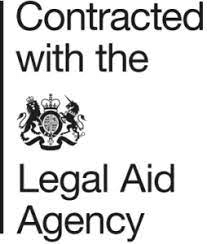RELATED ARTICLES
Fixed Fee Legal Aid Workplace Discrimination Solicitors
If you are an employee who has been dismissed, or are claiming discrimination, we can help.
At Winrow Solicitors, we assist with employment tribunal and other employment law problems.
– Discrimination at work
Employers are prohibited from discriminating unfairly against you when making decisions about hiring, promoting, demoting, firing, training, providing benefits and more. For example, you cannot be harassed in relation to your sex or gender, race or nationality, disability, sexual orientation, religion or age.
There’s a number of legal options available if you act quickly. We will review your situation and advise if you can make a claim.
Legal Aid Funding Available

Discrimination of any kind is not to be tolerated in our society.
When it occurs in the workplace it can be a particularly unpleasant experience for the one that suffers such treatment.
Our work often defines who we are, we spend much of our waking life at work and if because of discriminatory treatment we begin to loathe going into work, life can quickly become intolerable.
If you feel you have been discriminated against at work and unfairly treated then come and speak to us, don’t suffer in silence. We will assess your situation sensitively and offer advice as to how you can deal with the situation.
Workplace discrimination is covered by the Equality Act 2010 to protect you if you have one of the ‘protected characteristics’ from unfair treatment. Workplace discrimination comes in many forms and can often be classed as harassment or victimisation due to a protected characteristic.
– North Wales Discrimination Solicitors
When do you need a solicitor for a discrimination case?
Workplace discrimination cases can be highly complex. It is essential that you seek legal advice and representation as soon as possible if you are concerned about your treatment at work and believe you are being unfairly discriminated against. Any claim for Discrimination in the workplace MUST be brought within 3 months of the Discrimination (all may not be lost if outside 3 months in certain situations) so do not delay contact Winrow Solicitors today and speak to one of our Discrimination experts.
Winrow Solicitors can represent you in court and Employment Tribunal with Discrimination claims.
Universal Declaration of Human Rights 1948
All human beings are born free and equal in dignity and rights.
They are endowed with reason and conscience and should act towards one another in a spirit of brotherhood.
What are the different protected characteristics?

– Age
It is unlawful discrimination because of age to:
Discriminate directly against you – that is, to treat you less favourably than others because of your actual or perceived age, or because you associate with someone of a particular age, examples being:
- decide not to employ you.
- dismiss you
- refuse to provide you with training
- deny you promotion
- give you adverse terms and conditions
- compulsorily retire you
An employer might be able to defend a claim if their actions can be objectively justified.
Discriminate indirectly against you – that is, to apply a criterion, provision or practice (a work place rule that applies to everyone) which disadvantages people of a particular age unless it can be objectively justified.
- Subject you to harassment related to age
- Victimise you because you have made or intend to make a complaint or allegation or have given or intend to give evidence in relation to a complaint of discrimination because of age
Age groups can be quite wide (for example, ‘people under 50’ or ‘under 18s’). They can also be quite specific (for example, ‘people in their mid-40s’). Terms such as ‘young person’ and ‘youthful’ or ‘elderly’ and ‘pensioner’ can also indicate an age group.
– Disability
Some people that have this protected characteristic do not realise it. They get on with life and don’t let their disability get in the way.
However, you will be considered disabled under the Equality Act 2010 if:-
- You have a substantial physical or mental impairment, that is long- term and that has an adverse effect on your ability to carry out normal day- to-day activities.
So, a physical impairment could be arthritis and a mental one depression.
For it to be deemed long-term, a rule of thumb description would be that the impairment has lasted over a year.
As to everyday activities, there is no definitive list but could include the inability to climb stairs or wash the dishes.
Every person’s situation is unique, and our simple descriptions are only a guideline, so if you are unsure whether you have a disability just contact us and we assess your individual case and advise accordingly.
– Sex or Gender
You must not be discriminated against because:
- you are (or are not) a particular sex
- someone thinks you are the opposite sex (this is known as discrimination by perception)
- you are connected to someone of a particular sex (this is known as discrimination by association)
In the Equality Act, sex can mean either male or female, or a group of people like men or boys, or women or girls.
Discrimination rules also extend to equal pay. It is also unlawful for your employer to pay you less than a person of the opposite sex with similar experience and skills for doing either the same job or an equivalent role within the company.
– Marriage and Civil Partnership
The Equality Act 2010 protects you from discrimination because you are married or in a civil partnership.
Marriage or civil partnership broadly covers you if:
- You are married in a legally-recognised union – either an opposite-sex or same-sex couple.
- You are in a civil partnership – a legally recognised and registered relationship between two people of the same sex only.
The protected characteristic of marriage and civil partnership does not cover you if:
You are Cohabiting with another (you live with someone as a couple but are not married or registered civil partners.
- If you are engaged to be married, intend to marry or enter into a civil partnership.
- If you are divorced.
- If your civil partnership has been dissolved.
– Pregnancy and Maternity
Your employer will have discriminated against you if, during the ‘protected period’ of your pregnancy and statutory maternity leave, you are treated unfavourably because of your pregnancy or an illness resulting from it.
Also, if you are treated unfavourable because you exercise or seek to exercise your right to ordinary or additional maternity leave.
Your ‘protected period’, (when you have protection against discrimination) starts when you become pregnant and ends when your maternity leave ends or when you return to work, if this is earlier.
All employees have the right to take maternity leave.
There are two main types of pregnancy and maternity discrimination ; unfavourable treatment and victimisation.
Unfavourable treatment – You are protected against unfavourable treatment because of pregnancy or maternity. This means you as an employee or job applicant must not be disadvantaged because of your pregnancy or maternity. For example, you must not:
- be subjected to unfair treatment because of pregnancy or maternity
- suffer disadvantage because of pregnancy or maternity through the employer’s policies, procedures, rules or practices
- suffer unwanted behaviour because of pregnancy or maternity.
Victimisation can also occur because an employee is suspected of doing one or more of these things, or because it is believed they may do so in the future.
– Race
Accusations of racial discrimination have been hitting the headlines recently, both on the football pitch and off.
The Equality Act protects you against discrimination on the grounds of your race?
It would be unlawful for your employer to discriminate against you as an employee, job seeker or trainee because of your race –
This includes the different elements of colour, nationality, and ethnic or national origin.
For example, this would include turning you down as the best applicant for a job because you are Asian and the employer feels you would not ‘fit in’ with the rest of the staff because they are all English.
The protected characteristic of Race may include different elements that often merge:
Race is an umbrella term for the other four aspects below
- colour – examples include black and white.
- ethnic origin – this usually refers to your ethnic group to which you belong.
An ethnic group will usually have a long, shared history and its own cultural traditions which set it apart from other groups. It may also have a shared language, literature, religion and geographical origin, and may also be a minority or oppressed group. Examples of ethnic groups include Sikhs, Jews, Romany Gypsies and Irish Travellers (some of which have their own religions)
- national origin – birthplace, the geographical area and its history can be key factors. Examples include Welsh and English. National origins can include origins from a nation that no longer exists. For example, Yugoslavia. Someone’s national origin is fixed at birth, but their children may have a different national origin if they are born in another country
- nationality – usually the recognised state of which the employee is a citizen. In other words, what it says in their passport if they have one. For example, British citizen. This can differ from national origin.
Your race can be made up of two or more of the elements above.
For example, Black and British.
However, you may follow African Caribbean culture, customs and traditions, so regard yourself as British African Caribbean.
Your racial group could also be a mixture of colour and nationality. For example, Black South African.
Or, for example, you may have a Spanish name and have parents that were born in Spain but live in the UK as British citizens like him. They may also still follow Spanish customs. So your ethnic group might be British Spanish. This ‘sense of belonging’ can carry on through the generations.
– Region or Belief
The Equality Act 2010 protects you from discrimination, harassment and victimisation because of religion or belief
This characteristic mainly divides into two areas:
- religion and religious belief, and
- philosophical belief.
Religion and religious belief – A religion must have a clear structure and belief system. (a clearly-structured denomination or sect within a religion can also be covered).
If you don’t have a religious faith, you can be protected against discrimination. For example, someone who is not a Hindu would be protected against discrimination because they are not a Hindu.
So, religion means any religion and a reference to religion includes a reference to a lack of religion.
What makes up religious belief or practice may vary among people in that religion AND no one religion or branch of a religion overrides another – so you would be protected against discrimination by someone of another religion, or of the same religion or of a different branch or practice of their religion.
For example, it would be discriminatory for an employee to treat a colleague of the same religion unfairly because they regard them as less orthodox in their belief.
There is not a comprehensive list of religions, although the Equality Act explanatory notes give examples – the Baha’i faith, Buddhism, Christianity, Hinduism, Islam, Jainism, Judaism, Rastafarianism, Sikhism and Zoroastrianism.
Religious belief is an individual’s own faith and how it affects their life.
Philosophical belief:
Broadly speaking, a philosophical belief must be all the following:
- genuinely held
- not just an opinion or point-of-view based on current information
- a weighty and substantial aspect of human life and behaviour
- clear, logical, convincing, serious, important, and
- worthy of respect in a democratic society, compatible with human dignity and not conflicting with the fundamental rights of others.
It is broadly accepted that, for example, humanism, atheism and agnosticism are ‘beliefs’, but supporting a football team, being a member of a political party or loyalty to your native country are not.
– Gender Reassignment
You will have the protected characteristic of gender reassignment if you are proposing to undergo, are undergoing, or have undergone a process (or part of a process) of reassigning your sex by changing physiological or other attributes of sex.
A reference to a transsexual person is a reference to a person who has the protected characteristic of gender reassignment.
Contact us to find out more or to arrange a consultation with an experienced discrimination solicitor in Caernarfon.
– Sexual Orientation
‘Sexual orientation’ covers gay, heterosexual, bisexual and lesbian people.
Sexual orientation discrimination occurs in the workplace when you are treated less favourably because of your sexual orientation, your perceived orientation or the orientation of someone with whom you associate, and can arise in any of four ways:
- Direct discrimination
- Indirect discrimination
- Harassment
- Victimisation
Such discrimination can apply at interview stage, in the terms upon which you are being offered employment (or indeed whether you are offered employment at all), in promotion and transfer opportunities, when being dismissed or subjected to any other detriment. Therefore, the law is designed to protect employees and workers of any orientation during all aspects of employment. Moreover, you do not need to be employed for a particular period of time in order to bring a claim.
Contact Winrow Solicitors
Because we understand how devastating it can be to lose your job, be discriminated against or bullied at work – we will explain the law, give you a way forward so you can draw a line under your experience and most importantly move on…
If you have an employment law problem, call now to get free, no obligation consultation from one of our employment solicitors.
Why choose Winrow Solicitors?
- Free consultation. We offer a free half hour phone consultation with one of our experienced North Wales employment experts to review the overall circumstances of your complaint and see if you have a case.
- No win no fee. If you don’t win then we don’t get paid. We do not always offer this so would need to assess the merits of your case first.
- We’ll vigorously defend your rights. We’re passionate about justice for workers and keeping employers accountable for their actions.
- We’re experienced. We’ve dealt successfully with all kinds of employment claims. There’s nothing we like more than seeing our clients move past the bad experiences and confidently get on with their work lives.
- Contact us to get started with your free consultation.
Our Mission Statement
Our mission statement is clear – we exist to:
Maintain the highest standards of quality, client care and professional expertise;
Be recognised as experts in our fields;
To provide every client, regardless of their background and financial resources, access to justice;
Contribute to our communities.

